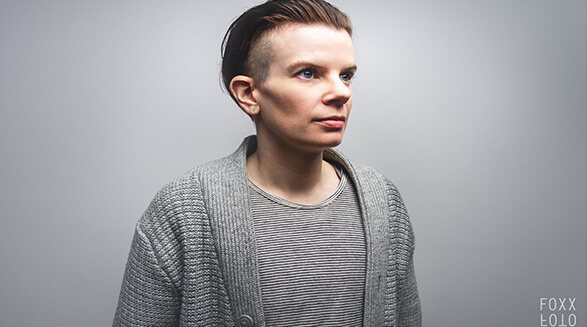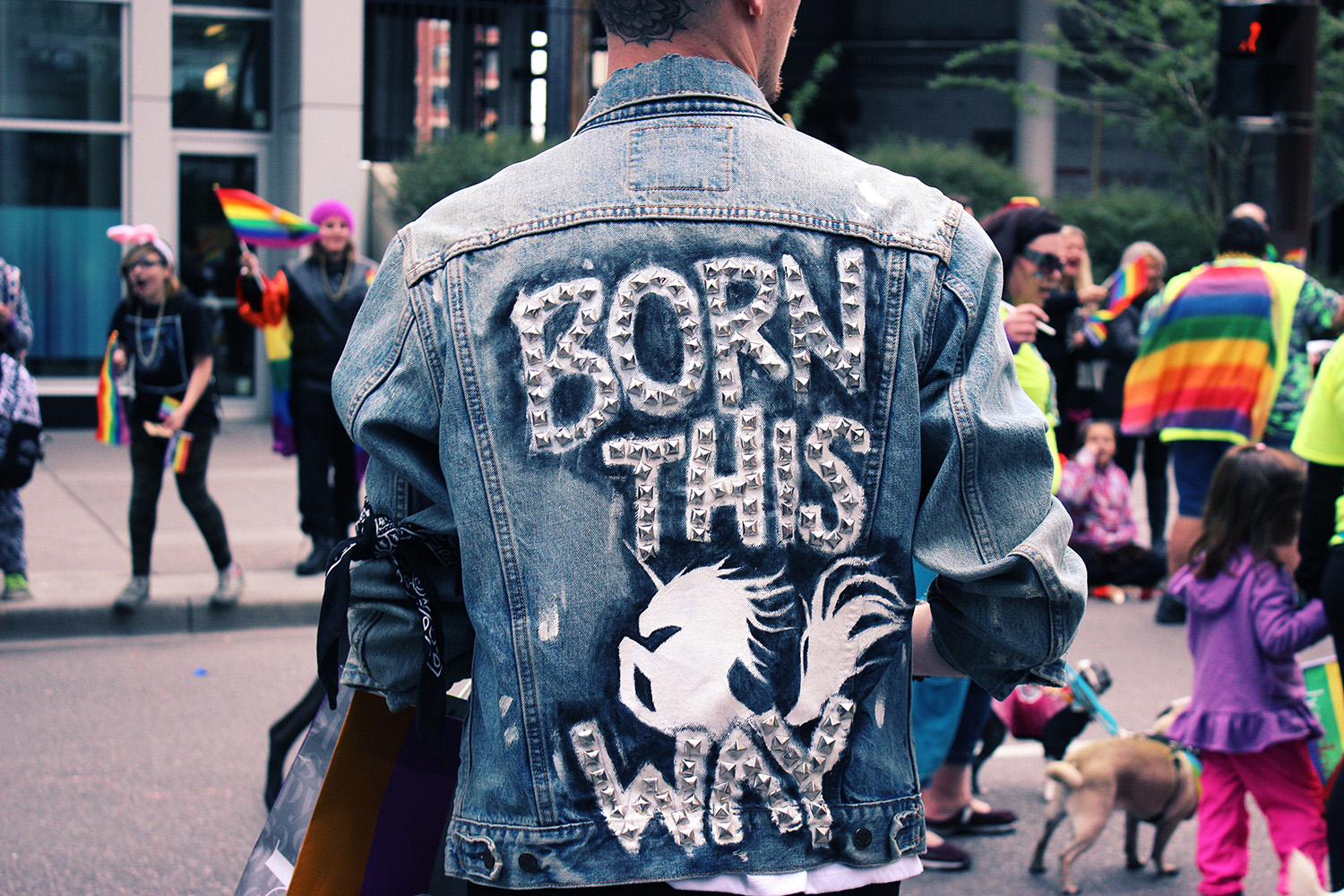We interviewed agender musician and author Rae Spoon
DtL: Hi Rae! Can you tell us a little bit about yourself and your journey so far?
Rae: I’m a Canadian agender musician and author. I grew up in Calgary, Alberta in a Pentecostal family. As soon as I left school I started playing shows and I’ve been touring, playing shows and making albums for the past eighteen years. It’s a pretty great full-time job. I came out as queer in high school and transgender FTM when I was twenty. At thirty I came out as agender and changed my pronoun to “they.”
DtL: Based on you experiences, what is it like to identify as agender in 2016 and what needs to change?
Rae: It’s both difficult and freeing to identify as agender in 2016. There is no legal recognition for my identity in Canada and very few people understand that there are folks who do not identify as male or female. In most legal and official situations I’m mis-gendered with the wrong pronouns and prefix. Pretty much every government system from health care to the census could use an overhaul to be more inclusive of gender non-conforming people, and it could also be less essentialist about bodies. The freeing part of being agender is that I no longer put pressure on myself to convince people that I am a certain gender. I do appreciate having proper pronouns used for me and I prefer not to be gendered in any way. It’s really great to try to stop catering to the pressures of the gender binary. I wrote a book about it called “Gender Failure” with my friend Ivan Coyote.
“It’s both difficult and freeing to identify as agender in 2016”
DtL: Did you ever experience bullying or prejudice because of attitudes towards your gender identity? If so can you tell us what happened and how you overcame the experience.
Rae: Binary gendering is present almost all of the time. I have had violent encounters with people because of their varied interpretations of my gender and sexuality. I don’t know if I ever overcame those experiences, but I have tried to be resilient. I have learned ways to try to be safer about where I go and who with, even though I know I (and others) shouldn’t have to do that work just to be safe. The hardest part was when I was a teenager, because I was trapped where I lived and couldn’t ask for any support.
(Here is Rae’s music video response to the trend toward laws that regulate how people use toilets according to their assigned sex at birth. Twenty-three LGBTQ and ally youth participants made their own monster or beast costumes and filmed this music video in an accessible, all-gender toilet to show that everything is better when it’s inclusive.)
DtL: What advice would you give to those who may be experiencing bullying or feel like they don’t fit in because of attitudes towards their gender identity?
Rae: I would say that being kind to yourself is the highest priority. Gender non-conforming people aren’t obligated to educate every person who comes across our paths. Safety is more important than answering any questions, and being open about your identity is your choice. That said, I have found that it’s very rewarding to be seen. Many people will change their minds because they met you. If you’re looking for a change you will be a big part of one.
DtL: What has been your proudest moment so far?
Rae: I was the Grand Marshal of the Pride Parade in the city I grew up in. I marched with local LGBTQIA youth from a camp where I had been the summer before as the artist-in-residence. I was so proud of them for marching through the city as well as for their great knowledge of anti-oppression politics. Some of the folks from the camp that year started a campaign to ask off-duty police officers walking in the Pride Parade not to be armed or wear uniforms because it’s triggering for more marginalised folks in the community. Seeing the youth be so engaged and knowing I got to be a small part of their lives made me very proud to know them.
“I have had violent encounters with people because of their varied interpretations of my gender and sexuality. I don’t know if I ever overcame those experiences”
DtL: What are your most prominent challenges, and how do you overcome them?
Rae: My most prominent challenge was establishing a music career in an industry that is notoriously prejudiced. I chose to engage this head-on by doing a lot of my management myself. I had faith that there were people who would listen to my music and not hold my identity against me and it turned out I was right.
DtL: What inspires your lyrics?
Rae: I like to think that my lyrics are very subconscious things. I don’t often have a direct inspiration for a song. It seems like I sit down and just end up writing them. The songs that seem to connect most with other people are ones that surprised me when I wrote them.
www.raespoon.com













